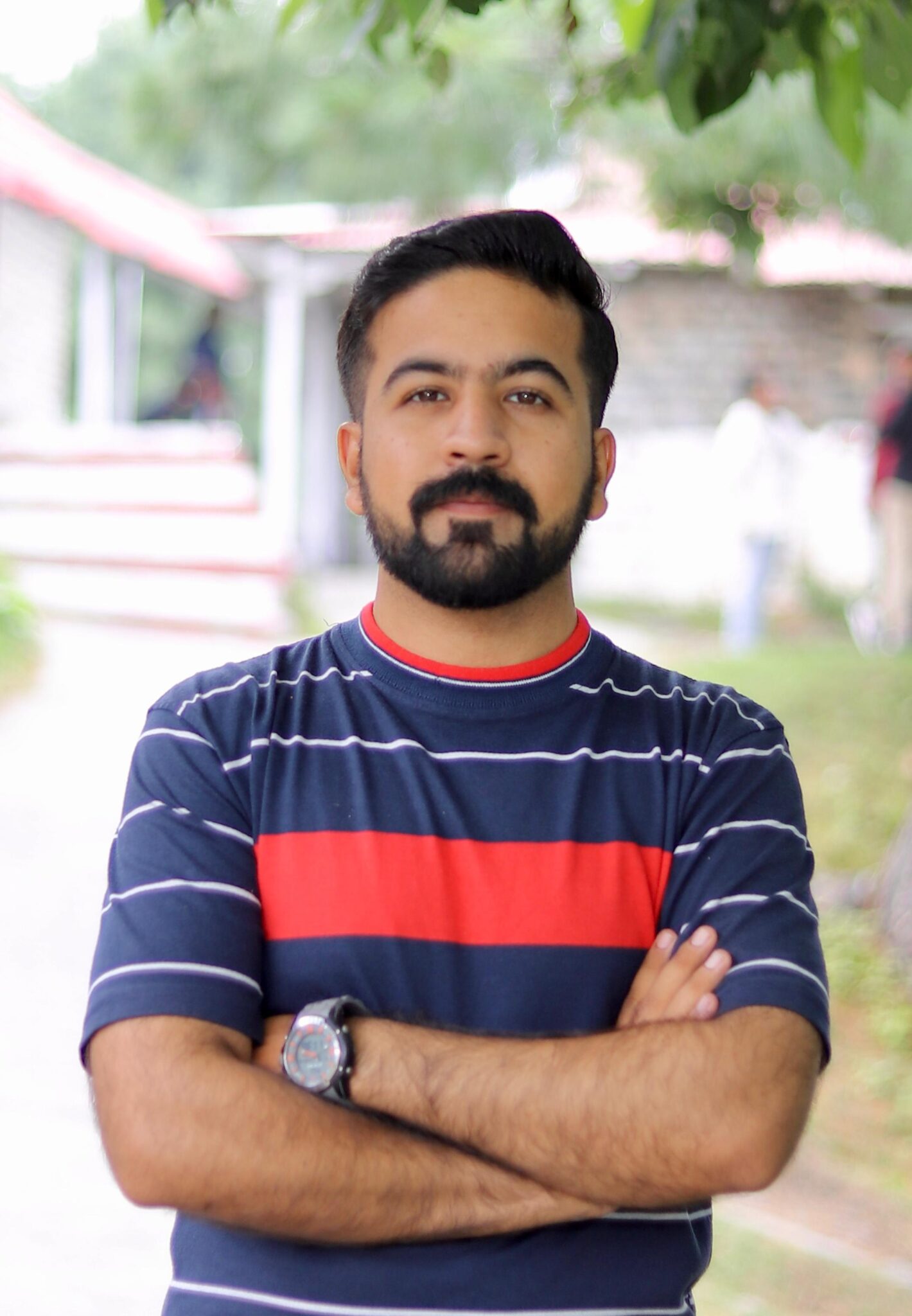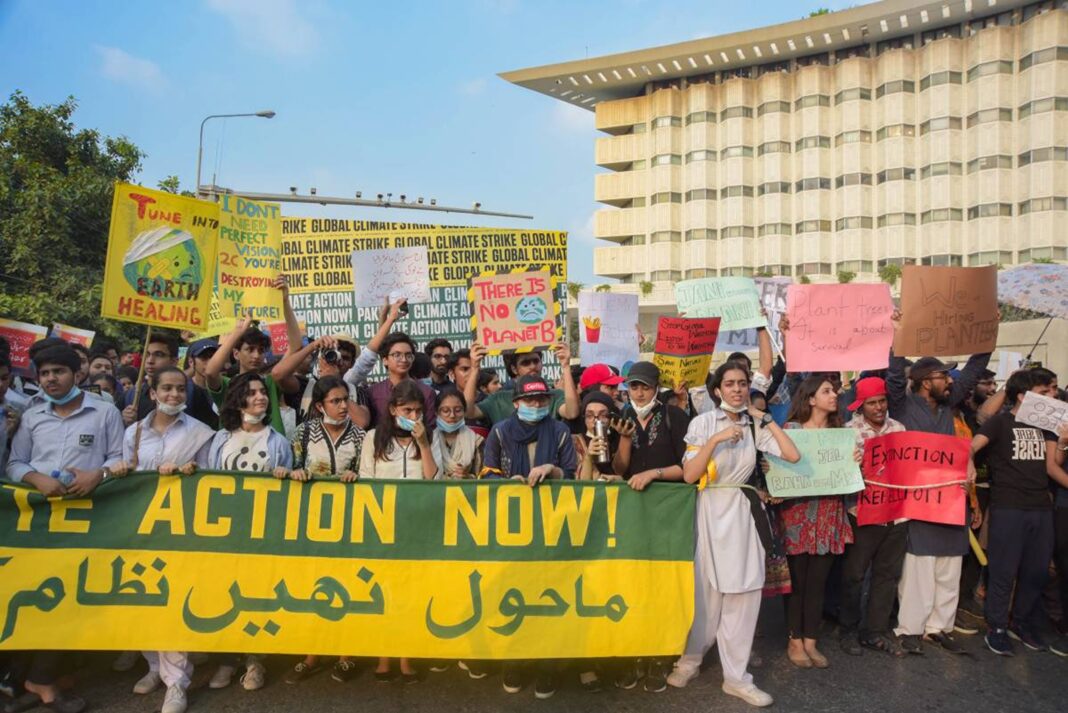I will never forget the summer of 2022. That was when the Kabul River rose and swallowed my hometown, Charsadda. Even now, it feels like it happened just yesterday. I remember the water rushing in with a force no one could stop. Within hours, the flood tore through our streets, our fields, and our homes. Schools, houses, everything disappeared under thick, muddy water. Families climbed onto rooftops, waving helplessly as their belongings and memories were washed away.
What I saw still haunts me: friends and relatives standing in shock, children shivering and crying from hunger, mothers holding their babies under the open sky, fathers watching their life’s work vanish in a single night. The silence was the hardest to bear, a heavy silence broken only by the cries of those left behind. That flood was not just a natural disaster; it was a human tragedy. It robbed people not only of their homes and livelihoods, but also of their hope.
Living through those days taught me something I will never forget: disasters don’t arrive gently. They strike without warning, and the destruction they bring is beyond anything you can imagine.
But amidst that overwhelming devastation, I saw something incredible rise. Climate Forward Pakistan (CFP), a youth-led organization I’m proud to be part of, stepped into the void. While we waited for government relief to mobilize, our volunteers were already on the ground, moving fast to reach those who needed help most. We moved from one makeshift shelter to another, distributing food, tents, and medicine to families who had lost everything. But what made CFP different was that we saw the wounds you couldn’t see.
We saw the trauma and the quiet grief carried by the women and children. So, we set up small counselling circles, safe spaces where survivors could share their pain and start to heal. I’ll never forget watching women who had lost their homes and their livelihoods slowly find the strength to smile again. Their dignity was being rebuilt through simple compassion. That experience changed me. It made me understand that disaster relief isn’t just about rebuilding houses; it’s about rebuilding lives, mending broken emotions, and restoring hope
In times like these, community-based organizations (CBOs) like CFP play a role that no one else can. They know their people, their culture, and their daily struggles in a way outsiders never will. Because they live right here, they understand the small, crucial details, the vulnerabilities, the traditions, the unspoken fears that big, official relief operations often miss. This closeness lets them cut through the red tape and act immediately.
When disaster strikes, CBOs are always the first on the scene with essentials: food, shelter, and basic medical care. Yet their role goes deeper than physical needs. They stand with people emotionally, helping to restore dignity when all feels lost. Most importantly, they focus on those who are most often forgotten: women, children, and marginalized groups.
In a disaster, every second counts, and the ability of a CBO to respond with both speed and sensitivity can literally mean the difference between life and death, between despair and resilience.
This brings me to the second reason CBOs are so vital: trust. In a crisis, people accept help from those they know. That inherent trust allows local groups to organize evacuations, distribute aid fairly, and ensure everything is done in a way that respects local culture and sensitivities. I saw this firsthand in Charsadda. Many families were hesitant to speak with government officials, but when we, as CFP volunteers, approached them, they welcomed us without a second thought.
Why? Because we were their neighbors. They knew we understood. In contrast, formal state aid often arrived late and felt distant, disconnected from the reality on the ground. This is the strength of youth-led organizations: we move with urgency, we act with empathy, and we get the culture in a way a bureaucracy never can
CFP’s work has now reached far beyond Charsadda, touching disaster-prone areas across Pakistan. Time and again, we’ve brought young people together to respond to climate crises, from floods to heatwaves to landslides. I’ve seen our energy and dedication make a real, tangible difference.
In Gilgit-Baltistan, for example, awareness campaigns led by young volunteers convinced families to evacuate before landslides hit, saving countless lives. What’s special is that these efforts are never one-size-fits-all. Every community has its own unique challenges, and CFP adapts, providing immediate help while also working to build long-term resilience.

As our leaders at CFP always say, relief and resilience must go hand in hand. One of our coordinators put it perfectly: “Relief helps us survive today, but resilience prepares us for tomorrow. If we empower our communities, we can reduce the destruction before it even begins.” Guided by this belief, we’ve invested in disaster preparedness programs in schools, trained volunteer first responders, and run awareness campaigns focused on women.
In Charsadda, women who once battled trauma are now local advocates for preparedness. In northern Pakistan, the youth volunteers we trained have successfully led pre-emptive evacuations. These results prove a powerful point: when empowered, communities are not passive victims; they become active agents of their own resilience.
The 2022 floods in Charsadda and everything that followed taught me one crucial lesson: Pakistan cannot rely on government institutions alone to manage disasters. As climate disasters become more frequent and fiercer, the role of youth-led, community-based organizations like Climate Forward Pakistan isn’t just valuable, it is essential.
We respond quickly, with empathy and a deep understanding that large systems often lack. Supporting organizations like ours isn’t just charity; it’s a critical investment in protecting lives, strengthening our nation’s resilience, and preserving the dignity of our most vulnerable people.
References:
- Abid, S. K., ul Haq, M., Rizwan-ul-Haq, H., Ali, S., Iqbal, N., Raza, M., & Ejaz, A. (2020). Strengthening community resilience: Developing a community-based model for sustainable volunteer engagement in emergency and disaster management in Pakistan. Qlantic Journal of Social Sciences.
- Shah, A. A., Ullah, A., Khan, N. A., Tariq, M. A. U. R., & Xu, C. (2023). Community social barriers to non-technical aspects of flood early warning systems and NGO-led interventions: The case of Pakistan. Frontiers in Earth Science, 11, 1068721
- World Bank. (2022). Pakistan floods 2022: Post-disaster needs assessment. Government of Pakistan.
Note: This article was prepared in collaboration with Climate Forward Pakistan, cfpakistan.org
Similar Articles: Swat Flood Tragedy: A Wake-Up Call on Climate Change, not a Headline to Forget

Muhammad Aizaz Ahmad is a disaster management specialist and climate advocate with experience in disaster risk reduction, emergency response, and climate adaptation. He has led community-centered flood relief initiatives and represented Pakistan at COP29, bridging academic research with frontline humanitarian practice.

